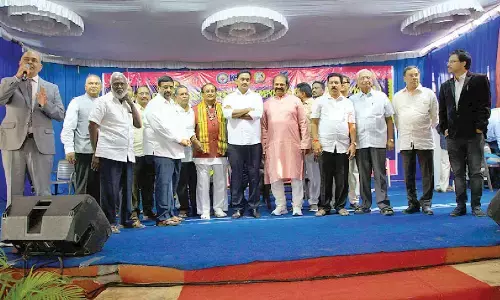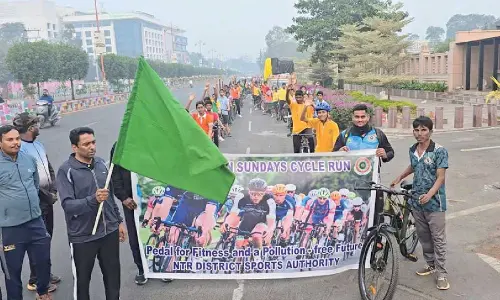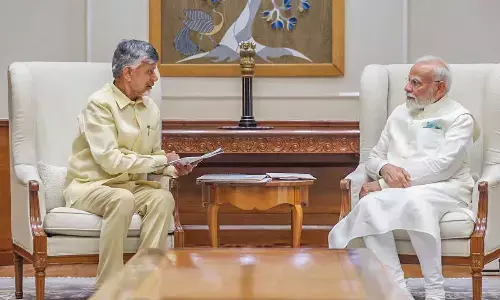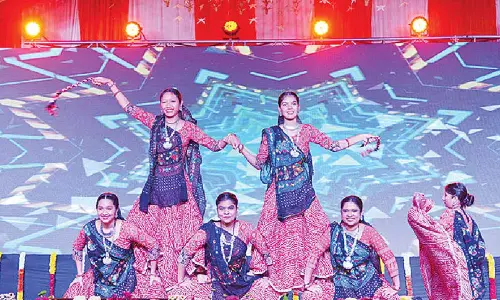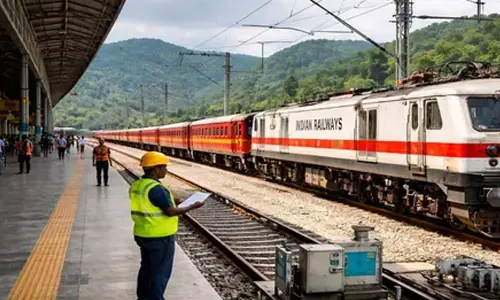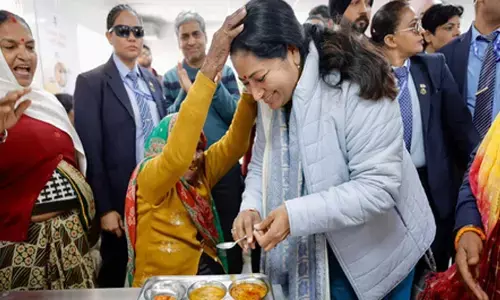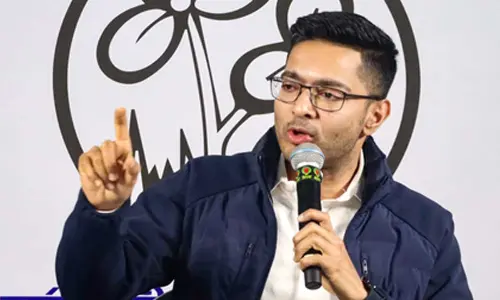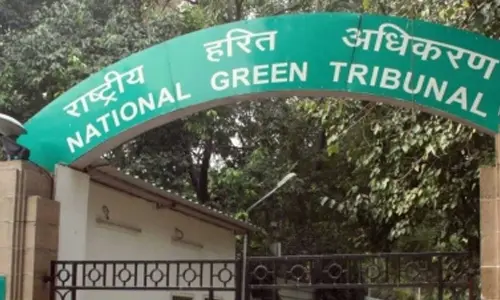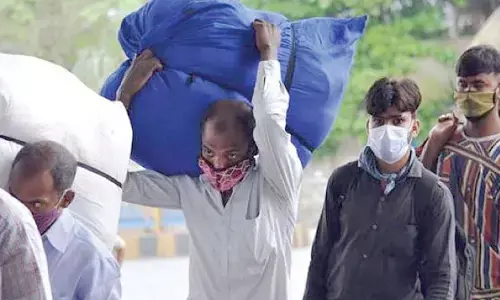Arrests of activists: Absence of Justice
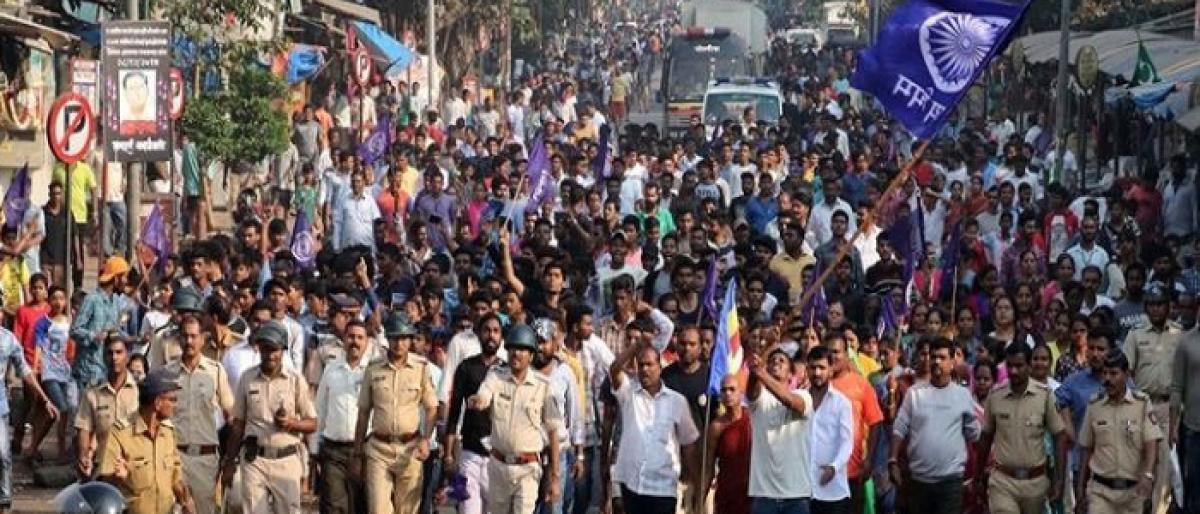
Harish Khare calls it empowering rogues in uniform, in a critical piece in thewire about the drama being unfolded around the powerplay in the countrys elite investigation agency Central Bureau of Investigation CBI
Harish Khare calls it “empowering rogues in uniform”, in a critical piece in ‘thewire’ about the drama being unfolded around the power-play in the country’s elite investigation agency - Central Bureau of Investigation (CBI).
The only one being investigated under the Supreme Court judgment of 26 October is the CBI chief, Alok Verma, and not his second-in-command Rakesh Asthana, who was allegedly facing serious charges even before he was forcibly installed in the CBI, or Verma’s temporary replacement, Nageswar Rao.
The judiciary and the police have worked over the years systematically to synchronise their voices with those of the political parties in power instead of doing their duty to act as a check on exercise of arbitrary power. The arrests of activists Varavara Rao, Sudha Bharadwaj, Vernon Gonsalves, Gautam Navalakha and Arun Fereira, framed in Bhima-Koregaon violence case in August, is another such instance.
Though these five, along with the earlier arrestees (Sudhir Gadling, Rona Wilson, Shoma Sen, Mahesh Raut, Sushir Dhawale), were not connected with the Elgaar Parishad meeting, they are now being held in various states of unfreedom. Those like Sambhaji Bhide and Milind Ekbote who have figured in the FIR filed soon after the Bhima-Koregoan violence are out continuing their activities undeterred, while those who are championing the cause of the marginalised victims have deftly been worked into the crime with great creativity.
The loss of life and property suffered by the Dalit victims is eliminated from public discourse. Many of them have also been arrested since. Others are under watch to ensure their silence. Bhima-Koregaon, which was about the assertion of Dalit pride, has now been successfully recast in public perception as a Maoist conspiracy.
The majority judgment in the review petition filed before the Supreme Court by Romila Thapar and others against the arrest of the activists in August placed reliance on the material gathered by the Maharashtra police which, “indicates complicity of the said accused in the commission of crime”.
Most of the accused (those arrested in June and August) are lawyers whose waking hours are spent in courts arguing for justice for Dalits, women, Adivasis and minorities from the working class. But they are being accused of (i) “have suggested training and laying of booby traps and directional mines”; and (ii) “are found to be providing strategic inputs in furtherance of the objective of armed rebellion” in pursuance of a strategic document of a banned terrorist organisation namely, the Communist Party of India (Maoist),” based on some letters purportedly recovered from the accused.
The letters produced as evidence by the Pune police have been called into question by former police officers who have had decades of experience in conducting anti-Maoist intelligence. They point out that Maoists would not reveal detailed plans, names of senior leaders involved, and financial transactions in their letters. They also point out that their primary mode of communication is hand-written and not through electronic devices that are easily tracked.
Dr Abhishek Manu Singhvi representing the petitioners in the Supreme Court also submitted that the 13 letters leaked by the police to the media are unsigned, do not bear identification particulars like email IDs or headers and are “recovered from the electronic device of a third person who is neither the author nor the addressee of the letters.”
The SC judgment does not take forward the prayer of the petitioners for getting “all electronic devices, records and materials, allegedly seized from the detenue/accused, be examined at a forensic science laboratory outside the State of Maharashtra to ensure fair play and in the interest of justice...”
However, the majority judgment does go on to declare, “This is not the stage where the efficacy of the material or sufficiency thereof can be evaluated, nor it is possible to enquire into whether the same is genuine or fabricated….” The judgement also refused to entertain the demand for an independent enquiry through an SIT.
In other words, the court saw no problem with the arrests of people based on fabricated evidence. Not only that, subsequent developments reveal that this has emboldened the police establishment to manufacture more such letters to bolster their false charges.
Instead of establishing the authenticity of the letters claimed to have been recovered from the accused, new letters have been produced to make fresh allegations in the lower courts. None of the judges appear to have asked the police specifically for authentication of their claims, nor pulled them up for the delay in authentication, even as they allowed the arrested individuals to continue to be deprived of their freedoms in various ways.
Indian law enforcement establishment, the police and the judicial system, has been notorious for depriving freedoms of people based on false claims made by the police. Whether it is scores of Muslim youth picked up on suspicion and charged under UAPA for involvement in terrorism and let off after years of abuse in Indian prisons or thousands of Adivasis being held in prisons on charges of Maoist links without a shred of evidence, India’s courts have not held out much hope for the innocent.
The accused are acquitted after years of harassment without any apology or compensation to pick up the broken and scattered pieces of their lives. The policeman who has fabricated the false charges and the judge who played along rarely pay for the human tragedy they gleefully scripted.
The courts can stem the abuse of the draconian laws if they choose to, but often they do not deem it necessary. What the police dictates is the law, because the courts have forgotten their duty to ask the right questions. This convergence of the political power, the judiciary, and the executive to mostly serve the corporate interests, “empowers the rogues in uniform”.
Justice DY Chandrachud’s dissenting judgement says, “But lofty edicts in judicial pronouncements can have no meaning to a citizen unless the constitutional quest for human liberty translates into securing justice for individuals whose freedom is under threat in specific cases.” After examining the case diary and other material gathered by the police and the allegations the police have come up with, Justice Chandrachud says it is “taking liberties with the truth.”
He also gives the example of a letter purportedly written by Sudha Bharadwaj, a non-Marathi-speaking person, writing in Devanagari script using forms peculiar to Marathi expression. Citing procedural lapses in conducting searches and arrests, Justice Chandrachud says, “In the interest of justice, and particularly when there are serious doubts regarding the investigation being carried out, it is not only permissible, but our constitutional duty to ensure that the investigation is carried out by a special investigation team or a special investigative agency so that justice is not compromised.”
But since the majority judgment tossed the cases back to the lower courts, bail has been denied to three of the accused, Sudha Bharadwaj, Vernon Gonsalves and Arun Fereira. While it is expected that Sudha will be arrested at any moment, Vernon Gonsalves and Arun Fereira have already been arrested by the Pune police. The Telangana High Court has extended the house-arrest of Varavara Rao till the middle of November.
The police appear to have the sanction from the highest court in the land that fabricated evidence can be managed through the system. This will sharpen as a political weapon and anyone can be its next target.
- Padmaja Shaw








